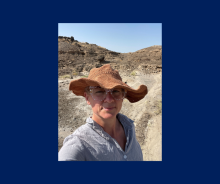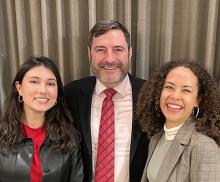For the anthropology department at St. Mary’s College of Maryland, finding permanent, qualified individuals to assist with highly-detailed archeological documentation on a long-term basis can be difficult. Because the professors in the anthropology department are often on work sites or focused on larger aspects of the projects, having volunteers to help with organization of artifacts in the lab is a necessity. The department relies on its volunteers to help with the labor-intensive work required to fully process the artifacts found on different sites. Students often take on these roles, assisting with the cleaning and cataloguing of artifacts. The experience helps them gain a deeper understanding of the work they’re doing and provides them with valuable experience for life after they graduate.
However, as Professor of Anthropology Julie King explains, “students move on; classes end, they graduate. Volunteers are here for the long haul, developing skills including labeling and artifact identification that just can’t be taught in a semester.”
Sara Fisher and Isabel Tonkavitch are two long-time volunteers in the anthropology lab at St. Mary’s College who offer an invaluable resource to the program. Fisher has been working with the school for nearly six years, coming in regularly to help clean and label catalogued artifacts. Tonkavitch began volunteering with anthropology in 2011 while still working full time as a federal employee. After retiring, she completed and graduated from the Certified Archeology Technician program under the Archeological Society of Virginia, which she says opened doors for her to volunteer for programs like the one found at St. Mary’s College. Both women highlight how incredible it is to work under King and Scott Strickland, adjunct instructor of anthropology, and how their passion for the work inspires them to continue working at the college.
For Fisher, working as a volunteer in the lab sets her imagination free. She said, “It’s not just touching something or looking at something, sometimes you have to listen to the sound something makes when it’s tapped on the table and see if you can hear what the substance is like from that.” It is an opportunity to continue to learn each time she comes in and a chance to see and work with artifacts that no other person has worked with before.
Tonkavitch had a similar experience. “I learn something new every time I come here,” she said. Not only that, but she understands that the results of what they are doing will remain long after they themselves are gone. She says that working around King and Strickland’s enthusiasm keeps her excited about the work they are doing.
King explained having volunteers like Fisher and Tonkavitch “provides a great balance to our work. And it’s good for our students to see the productivity of life after retirement.”
(Written by Zoe Smedley ’19, English major and PFP student for the Office of Integrated Marketing.)



